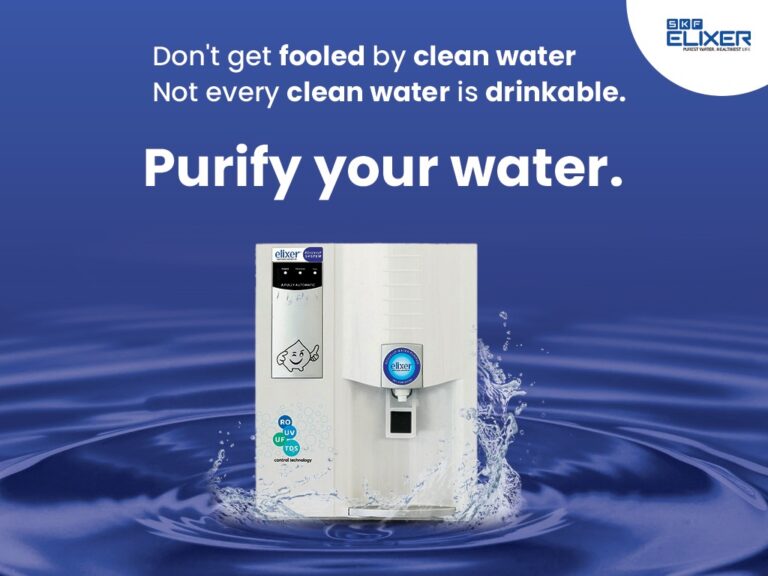Table of Contents
Choosing the right water purifier for home involves considering your water quality, health needs, and lifestyle. Here’s how to select the best water purifier for home:
Good reads are meant to be shared

Understand your Water Quality
- Test Your Water: Use a TDS meter or get a comprehensive water test to identify contaminants like bacteria, heavy metals, or chemicals. This will guide you to the right purification technology.
Know the Types of Purifiers
- Reverse Osmosis (RO):
- Best for: High TDS, hard water, or when you need comprehensive contaminant removal.
- Best Reverse Osmosis Water Purifier: Look for systems with multiple stages, including remineralization if beneficial minerals are a concern.
- Ultraviolet (UV) Purifiers:
- Best for: Disinfecting clear water from bacteria, viruses, and cysts.
- Activated Carbon Filters:
- Good Water Purifier for Home: Ideal for removing chlorine, taste, and odor issues.
- Alkaline Water Purifier for Home:
- Adds minerals to make water alkaline, potentially beneficial for health-conscious consumers.
- Gravity-Based Purifiers:
- Best for: Areas with no electricity or for emergency uses.
Consider the Purification Capacity
Daily Consumption: Choose a system based on your household’s daily water use. Larger families might need higher capacity or multiple points of purification.
Installation and Maintenance
- Space: Ensure there’s adequate space for the purifier type you’re considering.
- Maintenance: Check filter change frequency, cost, and ease. RO systems, for instance, might require more maintenance due to multiple components.
Certifications and standards
- Look for Certifications: Certified systems ensure they meet certain safety and performance standards.
Cost vs Benefit
- Initial Cost: Higher upfront costs for more advanced systems like RO can be offset by health benefits and longevity.
- Running Costs: Consider the cost of filter replacements, electricity if needed, and water wastage in RO systems.
Additional Features
- Smart Features: Some purifiers come with digital indicators for filter life, TDS levels, or water quality.
- Storage: Systems with built-in storage tanks can be beneficial for areas with frequent water cuts.
Environmental Impact
- Water Efficiency: If you’re environmentally conscious, consider water wastage in RO systems versus other methods

Recommended Water Filter:
- For General Use: A combination system (RO + UV + Carbon) often provides the best of all worlds, tackling a wide range of contaminants.
- For Specific Needs: If your water is already relatively clean but you’re concerned about pathogens, a UV or UV + Carbon might suffice.
FAQs:
Q1: What makes a best water purifier?
A: Effectiveness against local contaminants, low maintenance, good value for money, and certifications.
Q2: Is an alkaline water purifier for home necessary?
A: Only if you’re specifically looking for alkaline water benefits; otherwise, a standard purifier might suffice.
Q3: How do I know which water purifier for home to buy?
A: Base your decision on water quality tests, household size, and health priorities.
Q4: Can I install any best water purifier myself?
A: Many countertop or pitcher systems are DIY, but under-sink or whole-house systems often require professional installation.
Q5: Should I prioritize best reverse osmosis water purifier for all homes?
A: Not always; assess your water quality first to see if RO’s comprehensive filtration is necessary.
Selecting the right water purifier involves balancing your needs with practical considerations like maintenance, cost, and environmental impact. By understanding your water and matching it with the appropriate technology, you’ll ensure your home has access to clean, safe, and possibly health-enhancing water.
Good reads are meant to be shared




